 Highlights of the International Population Conference in BrisbaneBrisbane, Australia, 13-18 July 2025
IPC2025: A Global Reunion in Brisbane The 30th International Population Conference (IPC2025), held in Brisbane, Australia, from 13–18 July 2025, brought together 1,300 participants from 98 countries for six days of scientific exchange, learning, and networking. This was the first in-person IPC since 2017, following the COVID-related cancellation of the Hyderabad conference in 2021; the excitement of reuniting after eight years was palpable.
The programme was rich and diverse: more than 950 oral presentations and 205 posters covering 24 thematic areas of population research, alongside plenary sessions, research leader sessions, side meetings, and 13 pre-conference workshops that took place before the Conference opened at the University of Queensland. Topics ranged from fertility, mortality, migration, and ageing to sexual and reproductive health and rights (SRHR), gender dynamics, climate change, indigenous populations, and new methods in data collection and analysis.
Despite the challenges of limited funding and difficulty in obtaining visas, those who attended in Brisbane were impressed with the conference organization and facilities and the city of Brisbane. Participants rated the conference as excellent and praised the high quality of the sessions and the opportunity to connect with colleagues from around the globe. The Conference welcomed a particularly large cohort of early-career scholars, many of whom were attending their first IPC.
Opening Ceremony: A Warm Welcome to Country 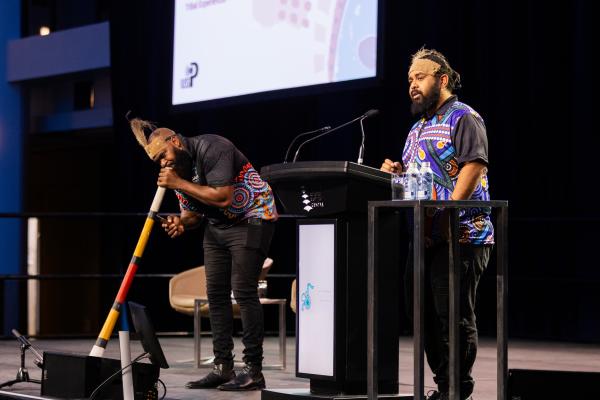
IPC2025 opened on 13 July with a powerful Welcome to Country, honoring Australia’s First Nations people. Welcoming remarks followed from the Australian Population Association, the Australian government, UNFPA and the IUSSP leadership. In her opening address, IUSSP President Shireen Jejeebhoy celebrated the global reunion while acknowledging the challenges demographers and those working on population issues face: widening inequalities, threats to SRHR, ultra-low fertility, climate change, migration crises, and threats to the integrity of demographic data.
She reminded participants of the Union’s mission: to advance the scientific study of population, to encourage exchange across borders, and to provide evidence that helps societies confront complex demographic realities. Shireen Jejeebhoy also noted that IUSSP had been recently honored for its mission and service to the field receiving the 2025 United Nations Population Award, presented just days earlier in New York to incoming President Laura Rodriguez Wong. IUSSP Honorary President Peter McDonald (2010-2013) came to the stage for a final welcome address. The ceremony closed on a high note with a reception, where colleagues reconnected and first-time attendees were welcomed into the IUSSP community.
Highlights from the Plenaries The plenary sessions provided a unifying thread across the week, each addressing critical demographic issues from global and regional perspectives:
The plenaries captured the urgency of the moment underscoring the relevance of the population sciences and the vigilance and creativity required to ensure demographic evidence informs policy.
Scientific and Policy Themes
Across the 190 regular sessions and 205 posters, the breadth of research was striking. Presentations highlighted new evidence on fertility decline, ageing, migration, and family change, while others showcased methodological innovation, including the use of satellite data, big data, and microsimulation.
Several sessions focused on sexual and reproductive health and rights (SRHR), with concern expressed over restrictions in many settings and the consequences for women and youth. Climate change and conflict were recurring themes, with demographers documenting the impacts of displacement, mortality, and resilience strategies. Many sessions also returned to the question of data: how to ensure continued investment in censuses, surveys, and registries while harnessing new opportunities offered by big data and AI.
Over 200 posters were presented during the daily poster sessions scheduled Monday to Thursday offering another venue for researchers to directly present and discuss the results of their research with participants. Each day a jury selected a “best poster“. Participants could visit the exhibits meeting with representatives of research and training institutes, statistical agencies, national and regional population associations and training centers and UNFPA.
Participants and Diversity
The conference attracted participants from all regions of the world, with strong representation from Asia-Pacific (46%), Europe (21%), Africa (16%), Northern America (13%), and Latin America and the Caribbean (5%). The largest national delegations came from India (201), Australia (176), the United States (146), China (56), and Italy (56).
Women made up 51% of participants, and nearly half of participants were under the age of 40. Universities and research institutes dominated (77%), followed by government agencies (11%), NGOs and private sector (9%), and international organizations (2%). Importantly, the Conference welcomed a new generation of scholars, many of whom benefited from targeted mentoring and practice sessions before the conference to strengthen their presentations.
Participants included not only researchers and academics from diverse disciplines but also representatives from government agencies, international organizations, national statistical offices, NGOs, and policymakers—including a parliamentary delegation from Ghana. The IPC provided a unique neutral forum for scientists, policymakers, and program managers to take stock of demographic trends, share evidence, assess policy responses, and discuss innovative approaches to data collection and analysis. The conference welcomed a large cohort of early-career researchers, many attending their first IPC, strengthening global networks and building capacity for the future.
Funding was crucial in enabling a diverse group of participants to attend. With support from UNFPA, the Gates Foundation, and IUSSP reserves, 270 applicants were selected for financial assistance, and 207 ultimately received support. Of those funded, 52% were women and 66% were under the age of 40. The majority came from Asia (63%), Africa (18%), and Latin America (14%). This support was particularly critical for LMIC participants, who might otherwise have been unable to attend.
Closing Ceremony and Awards
The Conference concluded on 18 July with a celebratory Closing Ceremony. Awards were presented for the best posters, the IUSSP Early Career Awards, and the IUSSP-Mattei Dogan Award for Comparative Research in Demography, awarded to KG Santhya who gave an address on “Growing up in the SDG Era: Diverse Realities of Young People in LMICs”. Outgoing President Shireen Jejeebhoy reflected on the overwhelmingly positive participant feedback, which praised the conference venue and smooth organization, the exciting sessions and the many excellent presentations.
Incoming President Laura Rodriguez Wong looked ahead to the next four years, setting priorities around SRHR, fertility decline, climate change, ageing, migration, and the transformative impact of big data and AI. She emphasized the Union’s commitment to inclusion and capacity building, particularly for young and LMIC scholars. A final farewell and thanks was given by Tabitha Scott, an early career demographer and PhD student at the Australian National University.
IPC2025 reaffirmed the International Population Conference as the world’s leading forum for population research and policy dialogue. Participants praised the scientific quality, the smooth organization, and the warm hospitality of our Australian hosts. Survey results confirmed the success: 79% rated the scientific programme as excellent or very good, 76% highlighted networking as a key benefit, and 78% said they would recommend IPC2029 to colleagues.
The energy, insights and connections made at Brisbane will continue to inspire our community as we continue our work to address the demographic challenges and opportunities in the years to come. We extend our heartfelt thanks to all members, partners, and funders who made IPC2025 possible—and we look forward to seeing you in Barcelona in 2029! Research Leader and Invited Sessions
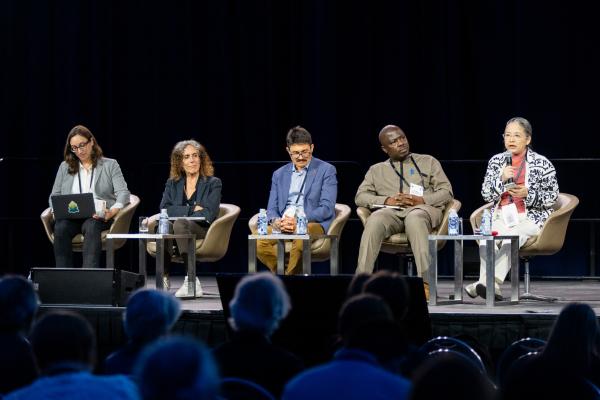
Australian National Organizing Committee Sessions (for speakers and description visit https://ipc2025.popconf.org/)
The Australian National Organizing Committee organized invited sessions focusing on Australia and the Pacific region:
Pre-conference workshops at the University of Queensland (for descriptions visit https://ipc2025.iussp.org/side-meetings-and-workshops/)
One workshop was organized during the conference: 14. Sexual and Reproductive Health and Rights (15 July)
Exhibitors
Sponsors
Selected photos:

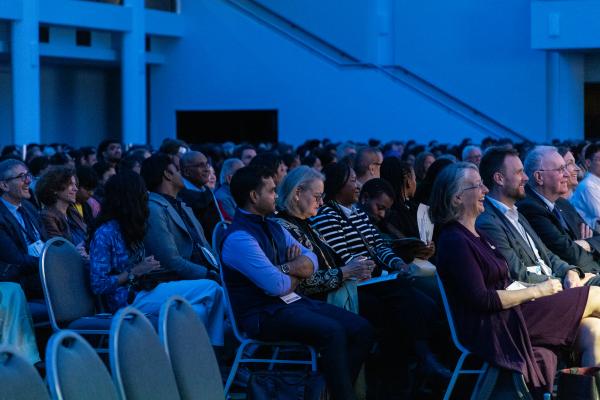
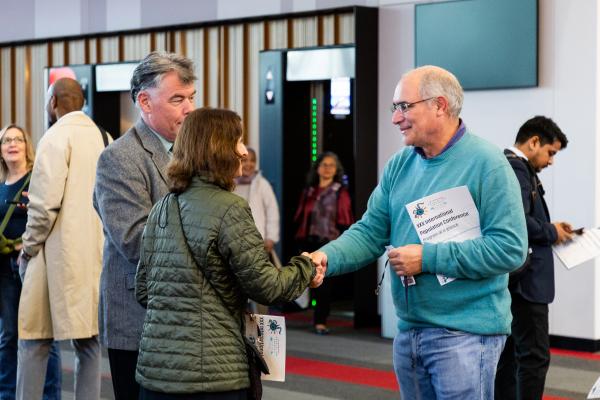
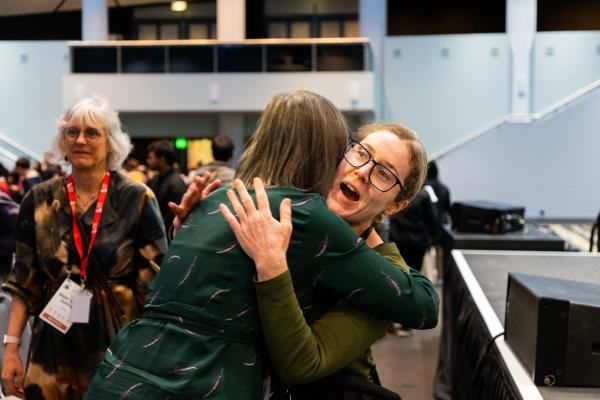
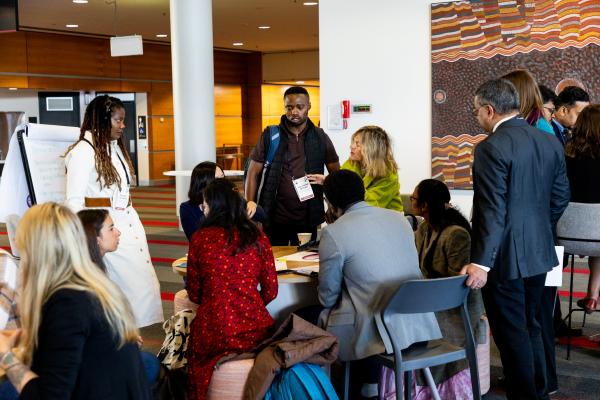
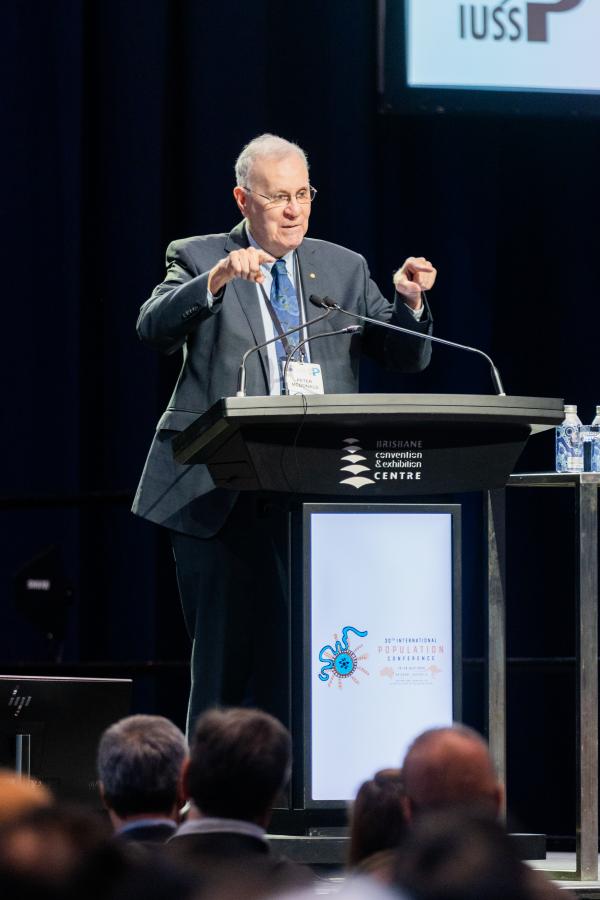
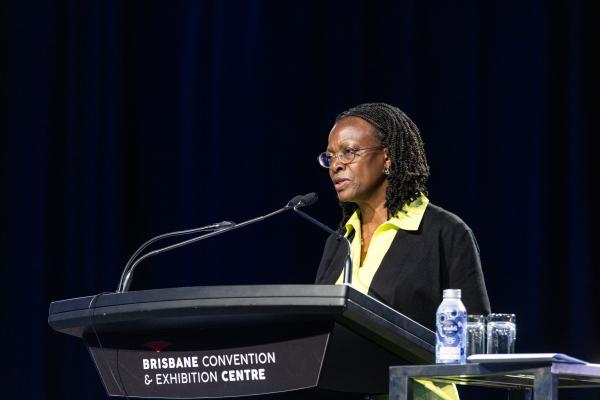
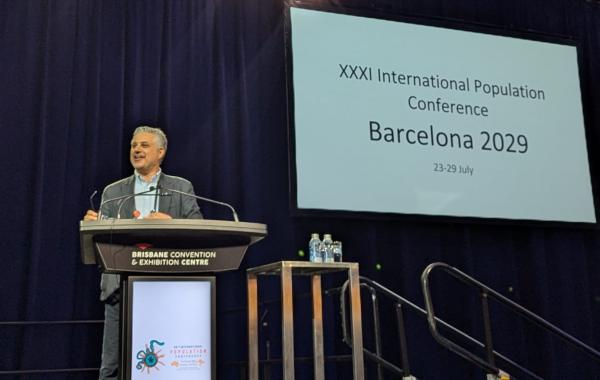

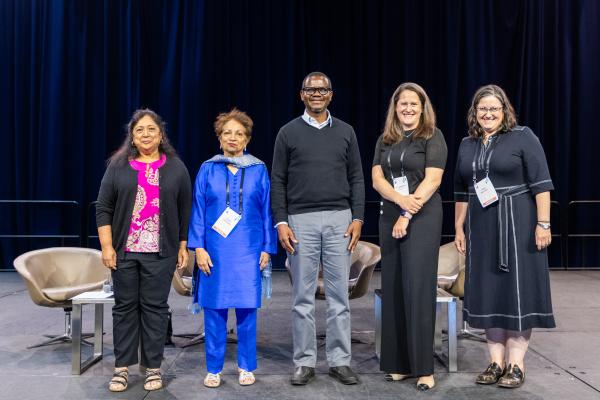
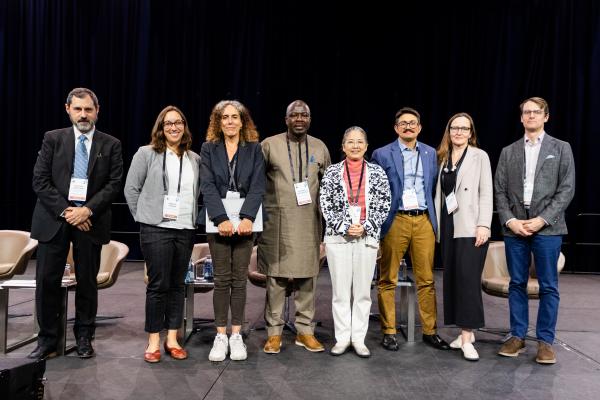
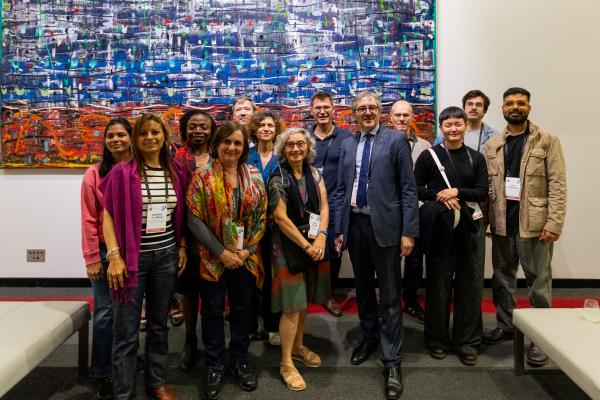

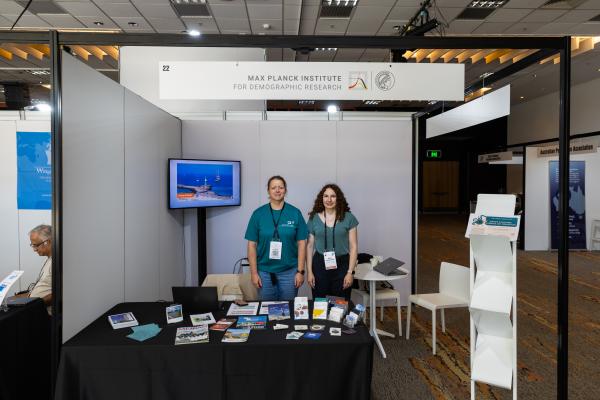
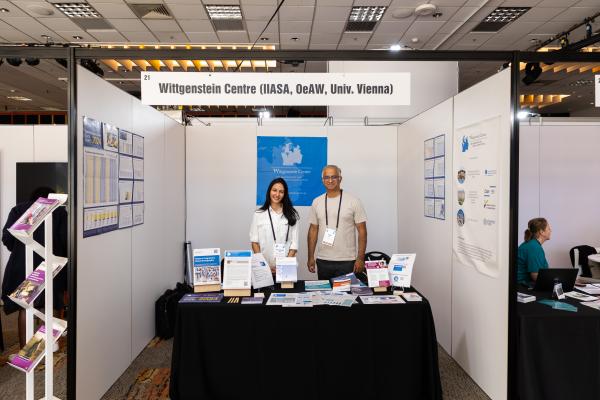
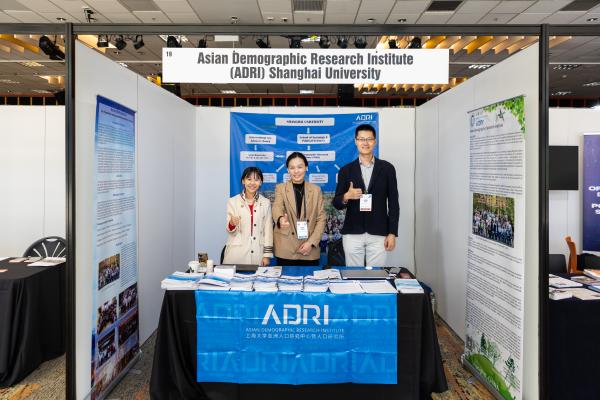
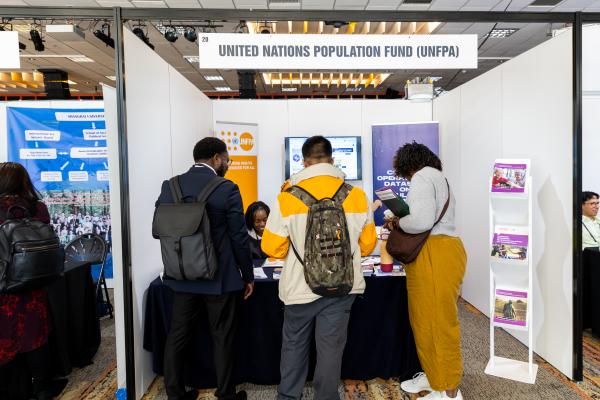
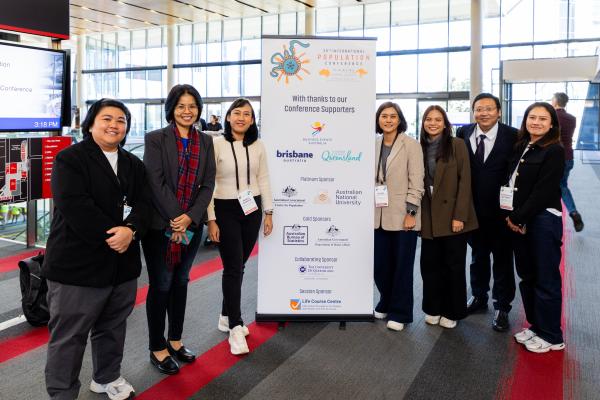
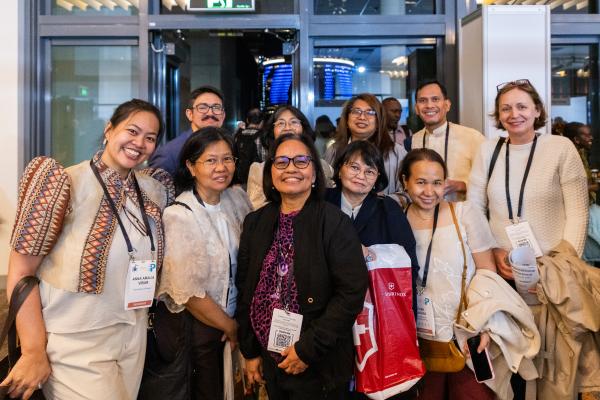
|
